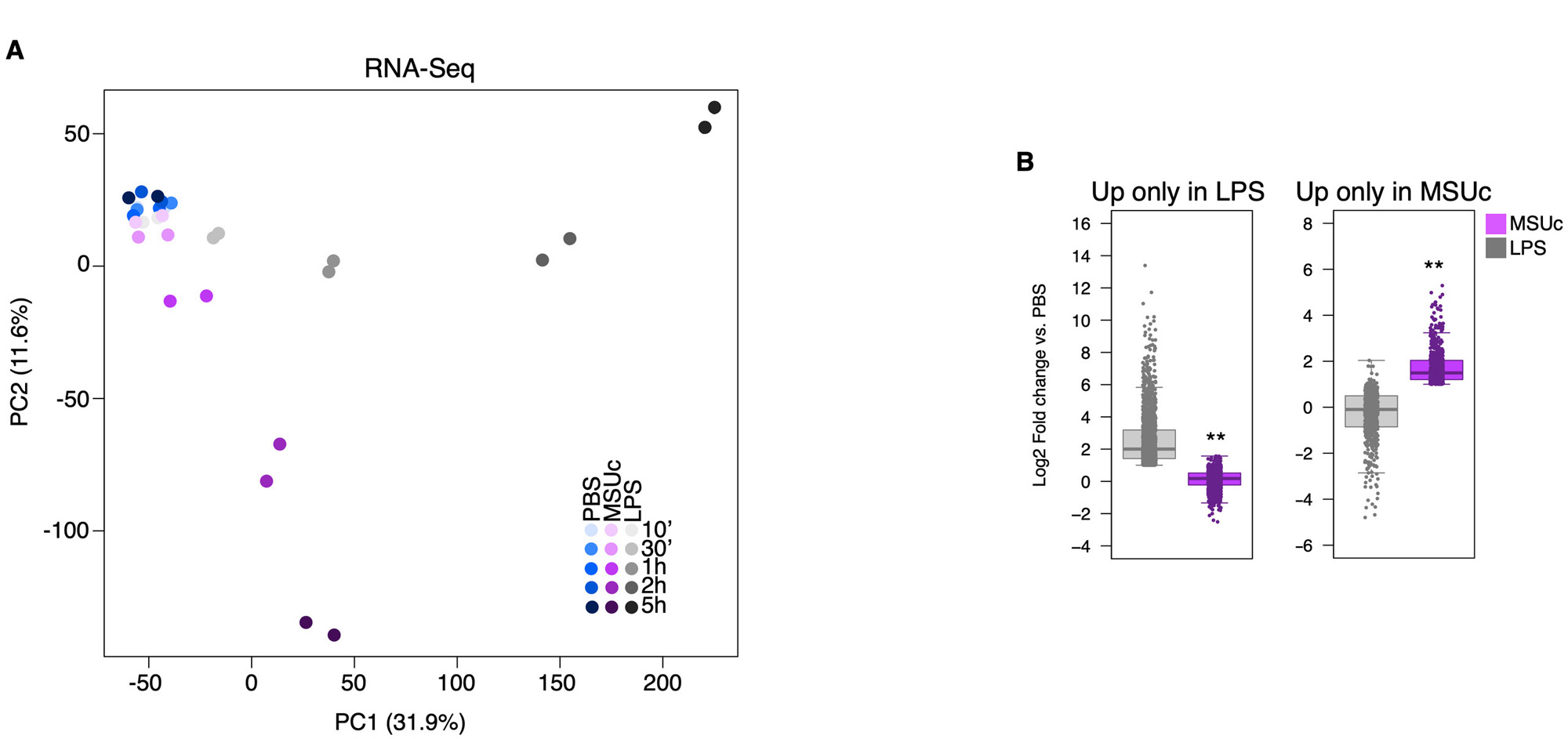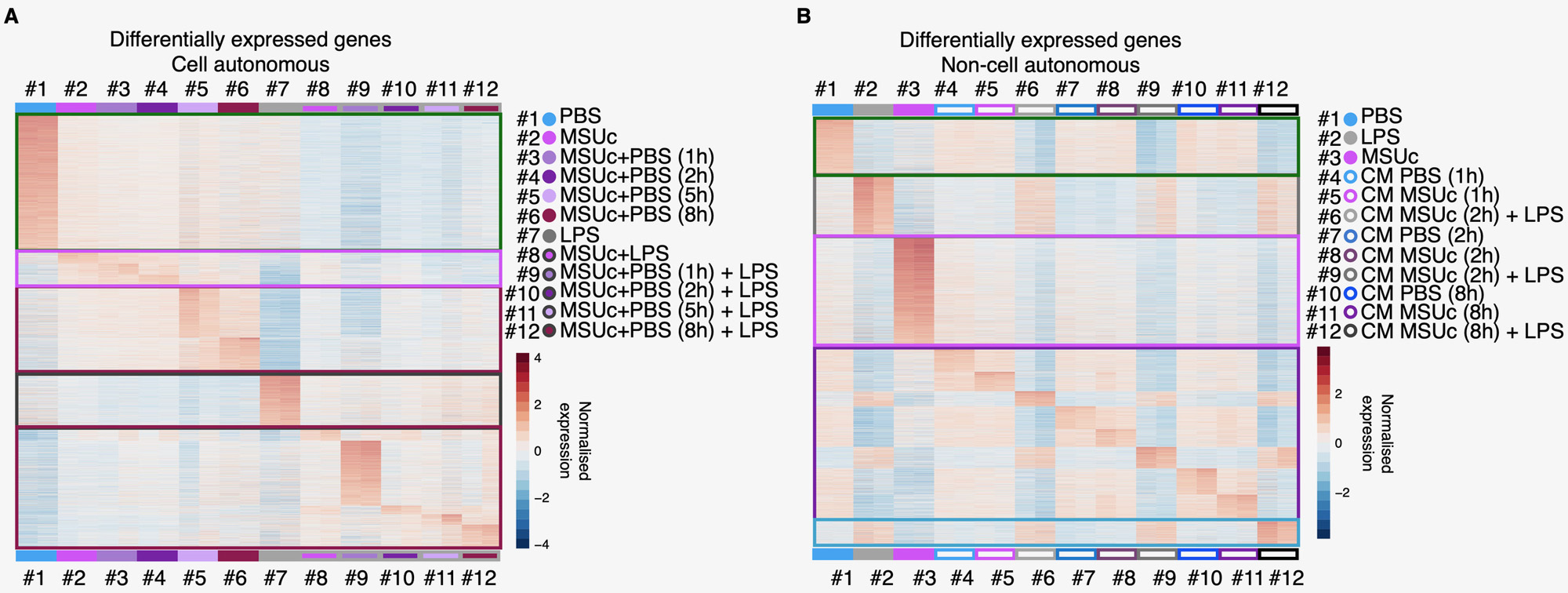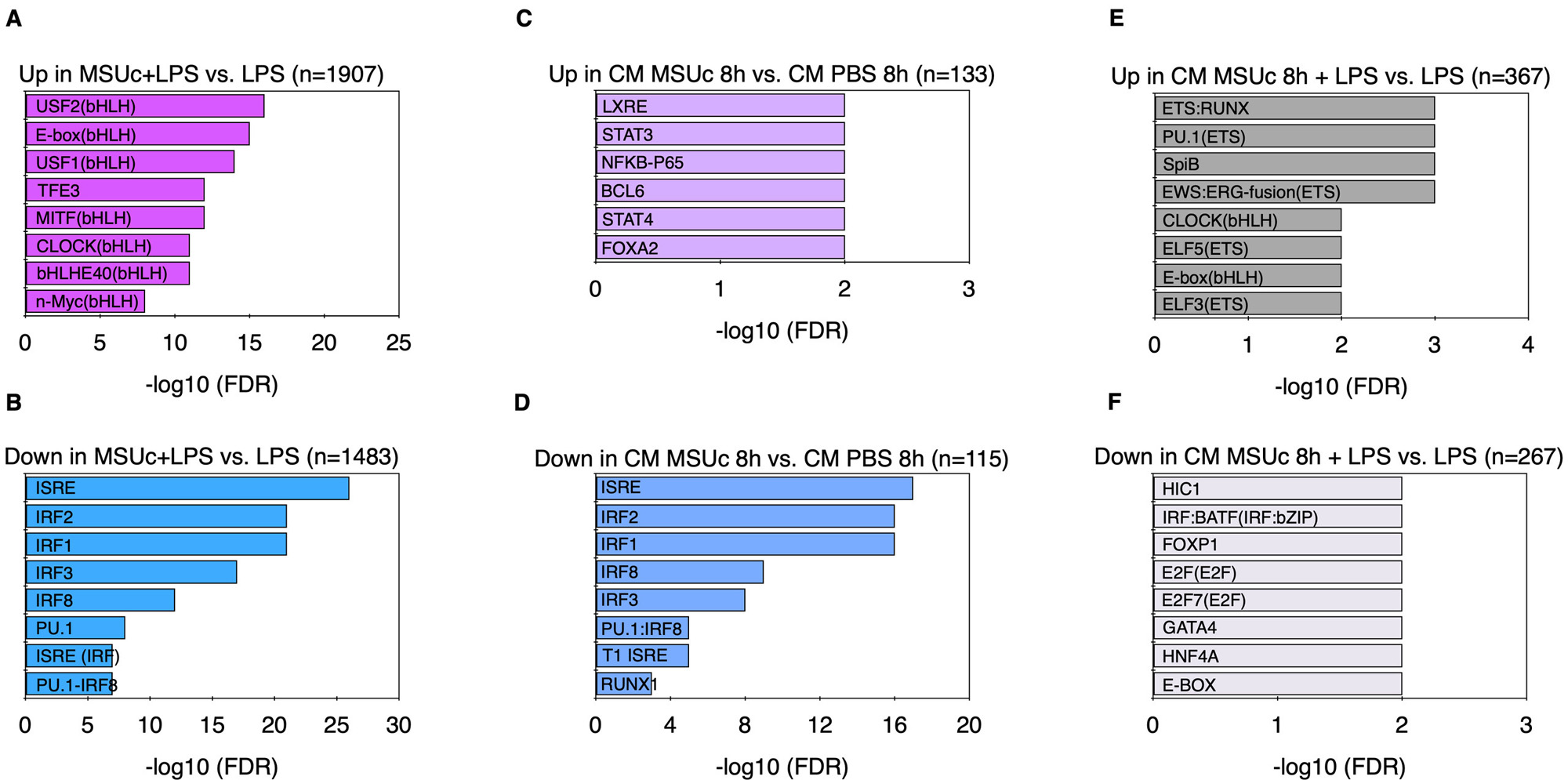Session Information
Session Type: Poster Session A
Session Time: 9:00AM-11:00AM
Background/Purpose: Gout is the most frequent form of inflammatory arthritis, with episodes of self-resolving acute inflammation in the joint caused by the deposition of monosodium urate crystals (MSUc). MSUc activates a battery of transcription factors and epigenetic regulators in macrophages during gout flares, which orchestrates a unique inflammatory and metabolic program. Much effort has been put into understanding the role of cytokine and inflammatory mediators, including inflammasome activation during gout flares. However, the mechanisms underlying the activation of a resolution program and the induction of immune tolerance in macrophages during the resolution phase of gout flares remain unknown.
Methods: We stimulated bone marrow-derived macrophages (BMDM) with LPS or MSUc for 10 min, 30 min, one hour, two hours and five hours and performed RNA-Seq. We primed BMDM with MSUc before stimulation with LPS for five hours and performed RNA-Seq. We incubated BMDM with the conditioned media of BMDM stimulated with MSUc before stimulation with LPS and performed RNA-Seq and promoter scanning analysis on the differentially expressed genes.
Results: We found that stimulation of BMDM with MSUc leads to a divergent response compared to that observed in BMDM stimulated with LPS (Figure 1A). Furthermore, the genes that are uniquely upregulated by LPS are significantly downregulated in BMDM stimulated with MSUc (Figure 1B, left), and the genes uniquely upregulated by MSUc are significantly downregulated in BMDM stimulated with LPS (Figure 1B, right). This data indicates that MSUc downregulates the transcriptional program induced by LPS.
Furthermore, we found that priming the BMDM with MSUc ablates the effect of LPS (Figure 2A, grey square). Interestingly, a similar effect is observed when BMDM are primed with MSUc, but we let the BMDM rest without MSUc for one, two, five and eight hours (Figure 2A, grey square). This data indicates that MSUc signaling ablates the signaling induced by LPS by activating a macrophage immune memory program.
We next investigated whether a non-cell autonomous activation mediates the anti-inflammatory program by MSUc in neighbouring cells. We incubated BMDM for one, two and eight hours with the conditioned media of BMDM stimulated with MSUc, before stimulation with LPS. Interestingly, the media conditioned by cells stimulated with MSUc abrogates the BMDM response to LPS (Figure 2B, grey square).
In addition, we demonstrated that MSUc activates the BHLHE/circadian clock and LXR TF while reducing interferon response factor activity (Figure 3A-F).
Conclusion: Our data indicate that MSUc activates an anti-inflammatory, pro-resolution program with immune memory properties governed by BHLHE/circadian clock TF and abrogates interferon response factors.
(A) Principal component analysis of RNA-Seq experiment of BMDM stimulated with PBS, LPS or MSUc at various time points (n=2/condition).
(B) Boxplot showing the genes uniquely upregulated by LPS (left) or MSUc (right) and their degree of expression in BMDM stimulated with LPS or MSUc (n=2/condition).
Except for RNA-Seq experiments, Student’s T-test was used to calculate statistical significance.
(A) Pheatmap of differentially expressed genes of BMDM stimulated with LPS or MSUc under various conditions (n=2/condition).
(B) Pheatmap of differentially expressed genes of BMDM stimulated with LPS or MSUc or conditioned media from BMDM stimulated with MSUc under various conditions (n=2/condition).
MSUc+PBS (1h, 2h, 5h or 8h)= BMDM stimulated with MSUc, culture media was removed, and fresh media without MSUc was added for 1h, 2h, 5h or 8h, respectively.
CM= conditioned media.
Except for RNA-Seq experiments, Student’s T-test was used to calculate statistical significance.
(A-F) HOMER analysis of the promoter of differentially expressed genes at various conditions from experiments shown in Figure 2.
CM= conditioned media.
To cite this abstract in AMA style:
Alishala M, Calderon S, Chen A, Guma M, glass C, Cobo I. Monosodium Urate Crystals Activate an Immune Tolerance Program That Restrains the Activation of Inflammatory Signaling in Macrophages During Gout Flares [abstract]. Arthritis Rheumatol. 2023; 75 (suppl 9). https://acrabstracts.org/abstract/monosodium-urate-crystals-activate-an-immune-tolerance-program-that-restrains-the-activation-of-inflammatory-signaling-in-macrophages-during-gout-flares/. Accessed .« Back to ACR Convergence 2023
ACR Meeting Abstracts - https://acrabstracts.org/abstract/monosodium-urate-crystals-activate-an-immune-tolerance-program-that-restrains-the-activation-of-inflammatory-signaling-in-macrophages-during-gout-flares/



